Description: MR. ABBAS MEKKIS 1959 - 1961 Mr. Abbas Mekkis, a Sudanese, was the first Executive Secretary of ECA (1959 to 1961). Under him, ECA promoted statistics for African development and initiated the idea of establishing subregional offices for enhanced service delivery in all subregions. His service at ECA was cut short by his appointment as the Secretary-General’s Representative to the Congo.
Image: 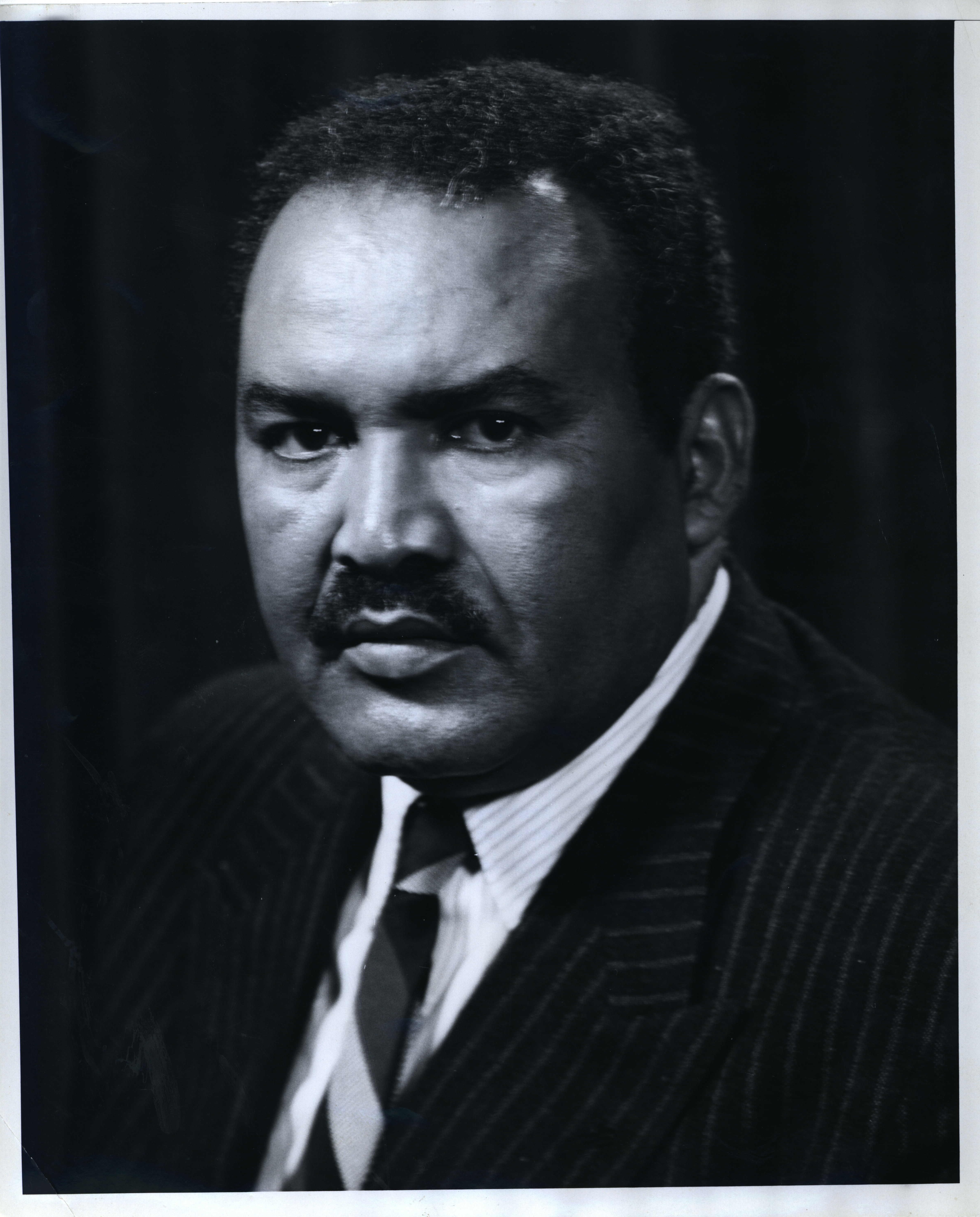 Description: MR. ROBERT K.A. GARDINER 1961 - 1975 Mr. Robert K.A. Gardiner, a national of Ghana, served as Executive Secretary from 1961 to 1975, during which period ECA set up an institutional framework for the successful implementation of African development policies and helped to establish the African Development Bank and the African Institute for Economic Development and Planning. Under Mr. Gardiner, ECA promoted post-independence original thinking and research on African policy.
Image:
Description: MR. ROBERT K.A. GARDINER 1961 - 1975 Mr. Robert K.A. Gardiner, a national of Ghana, served as Executive Secretary from 1961 to 1975, during which period ECA set up an institutional framework for the successful implementation of African development policies and helped to establish the African Development Bank and the African Institute for Economic Development and Planning. Under Mr. Gardiner, ECA promoted post-independence original thinking and research on African policy.
Image: 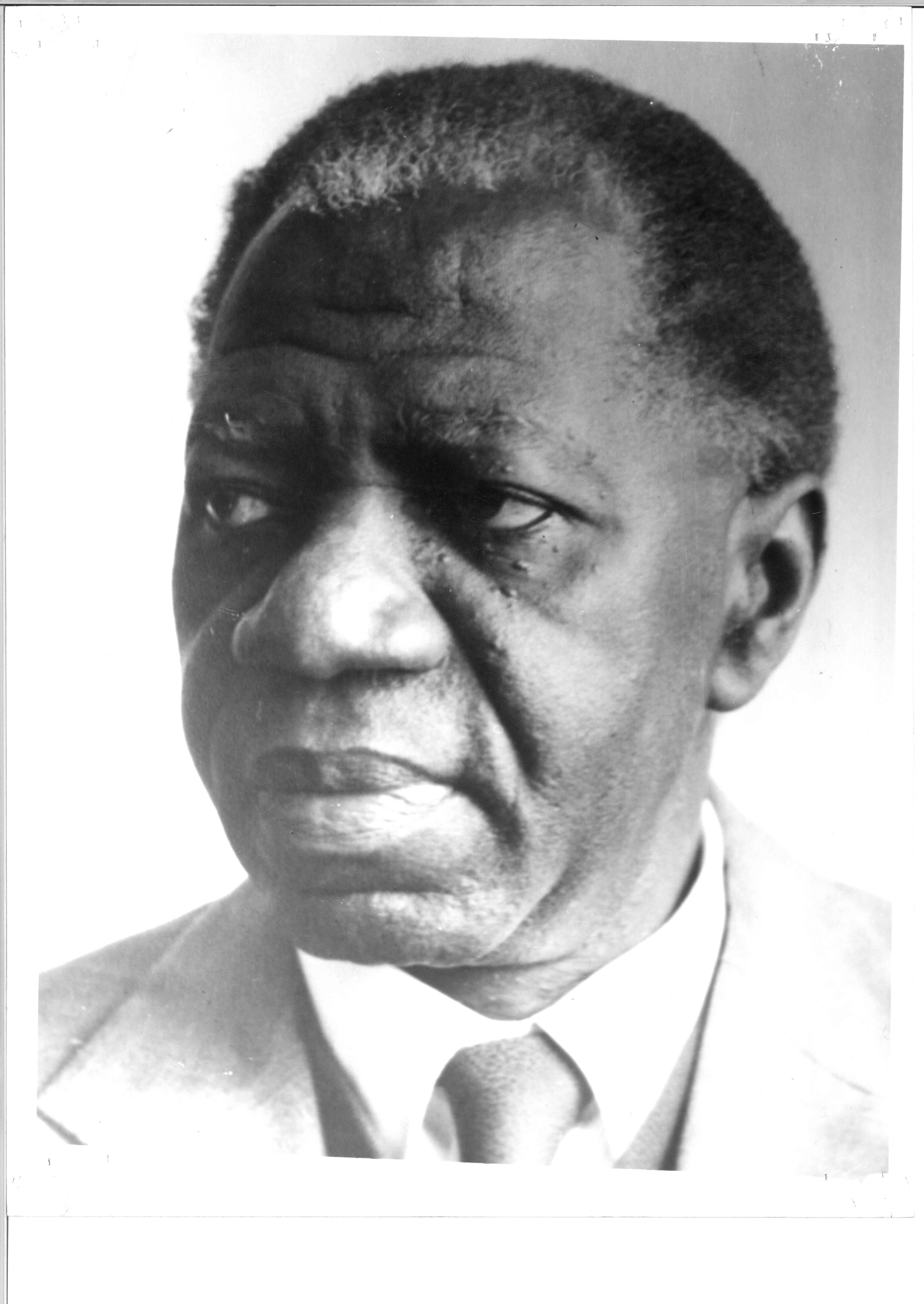 Description: PROF. ADEBAYO ADEDEJI 1975 - 1991 Prof. Adebayo Adedeji, from Nigeria, was Executive Secretary from 1975 to 1991, during which period ECA tackled the challenges of a new international economic order to Africa and adopted landmark policies such as the Lagos Plan of Action. Prof Adedeji worked to correct the adverse impacts of structural adjustment programmes on African economies, offering an alternative – the African Alternative Framework to Structural Adjustment Programmes for Socioeconomic Recovery and Transformation. He led the establishment of the regional economic communities, beginning wi
Image:
Description: PROF. ADEBAYO ADEDEJI 1975 - 1991 Prof. Adebayo Adedeji, from Nigeria, was Executive Secretary from 1975 to 1991, during which period ECA tackled the challenges of a new international economic order to Africa and adopted landmark policies such as the Lagos Plan of Action. Prof Adedeji worked to correct the adverse impacts of structural adjustment programmes on African economies, offering an alternative – the African Alternative Framework to Structural Adjustment Programmes for Socioeconomic Recovery and Transformation. He led the establishment of the regional economic communities, beginning wi
Image:  Description: MR. ISSA BEN YACINE DIALLO 1991 - 1992 M. Issa Ben Yacine Diallo, from Guinea, succeeded Prof. Adedeji in August 1991. He was the Director of Cabinet of the Secretary-General and served as ECA Executive Secretary for a transition period of one year, during which time he launched United Nations Trust Fund for the Transportation and Communications Decade in Africa II as envisaged in the Abuja Treaty, establishing the African Economic Community.
Image:
Description: MR. ISSA BEN YACINE DIALLO 1991 - 1992 M. Issa Ben Yacine Diallo, from Guinea, succeeded Prof. Adedeji in August 1991. He was the Director of Cabinet of the Secretary-General and served as ECA Executive Secretary for a transition period of one year, during which time he launched United Nations Trust Fund for the Transportation and Communications Decade in Africa II as envisaged in the Abuja Treaty, establishing the African Economic Community.
Image: 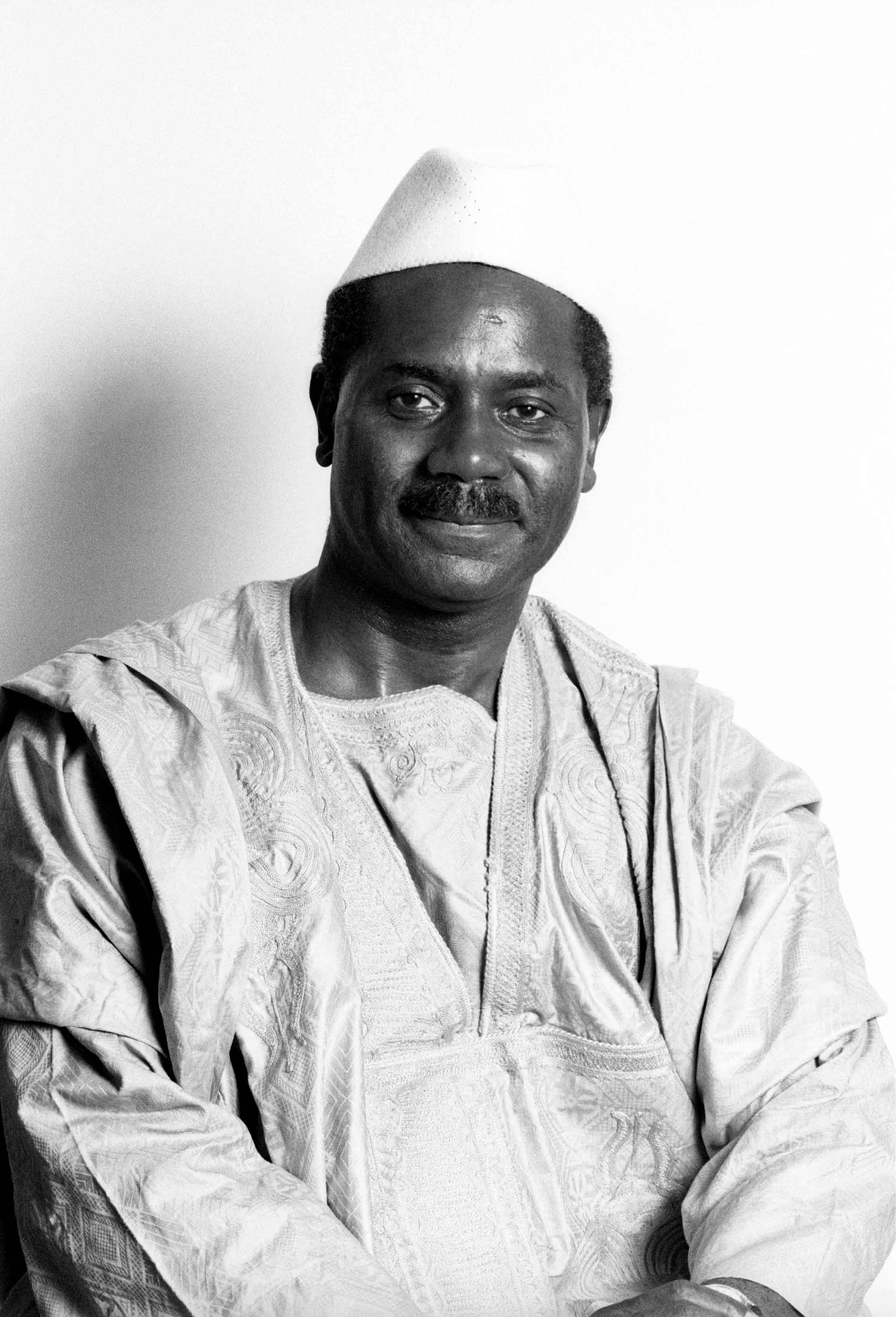 Description: MR. LAYASHI YAKER 1992 - 1995 Mr. Layashi Yaker, former Algerian Ambassador and Minister, became Executive Secretary of ECA in 1992 when he led the Commission to the Rio Summit. He also led the effort for ECA to carry out the Rio Declaration follow-up activity: building African countries’ capacity for sustainable development by devising strategies for Agenda 21 implementation. Mr. Yaker adopted a Plan of Action to harmonize the objectives of the Second Industrial Development Decade for Africa with those of UNTACDA II in order to facilitate implementation of both initiatives.
Image:
Description: MR. LAYASHI YAKER 1992 - 1995 Mr. Layashi Yaker, former Algerian Ambassador and Minister, became Executive Secretary of ECA in 1992 when he led the Commission to the Rio Summit. He also led the effort for ECA to carry out the Rio Declaration follow-up activity: building African countries’ capacity for sustainable development by devising strategies for Agenda 21 implementation. Mr. Yaker adopted a Plan of Action to harmonize the objectives of the Second Industrial Development Decade for Africa with those of UNTACDA II in order to facilitate implementation of both initiatives.
Image: 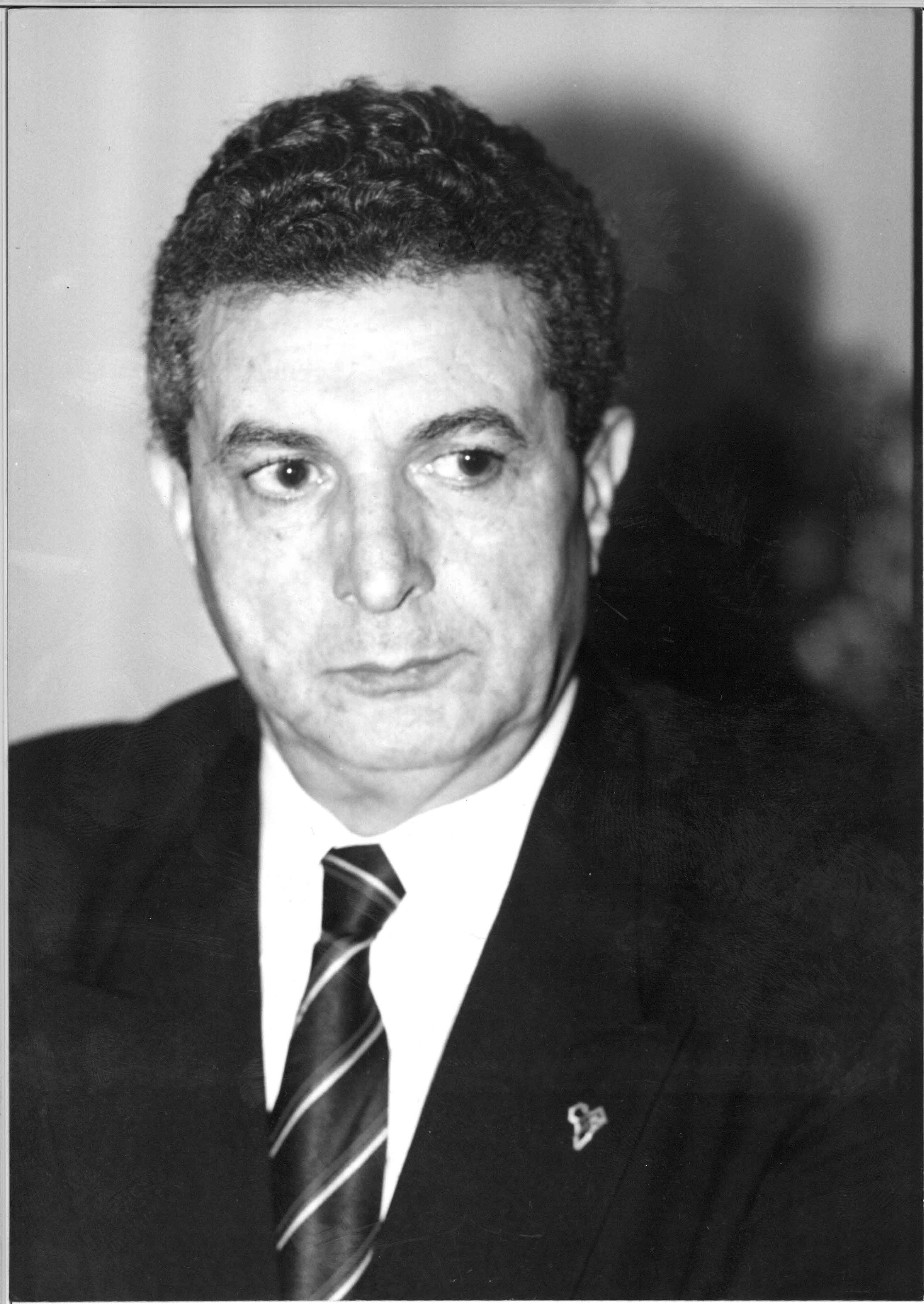 Description: MR. KINGSLEY Y. AMOAKO 1995 - 2005 Mr. Kingsley Y. Amoako, a national of Ghana, served as Executive Secretary from 1995 to 2005, during which time ECA concentrated on helping African countries to leapfrog into the information age. He institutionalized the African Development Forum and the Big Table as platforms for African policymakers and their development partners to build consensus on key African development issues, providing the Commission with the opportunity to exert its convening power at the highest level.
Image:
Description: MR. KINGSLEY Y. AMOAKO 1995 - 2005 Mr. Kingsley Y. Amoako, a national of Ghana, served as Executive Secretary from 1995 to 2005, during which time ECA concentrated on helping African countries to leapfrog into the information age. He institutionalized the African Development Forum and the Big Table as platforms for African policymakers and their development partners to build consensus on key African development issues, providing the Commission with the opportunity to exert its convening power at the highest level.
Image: 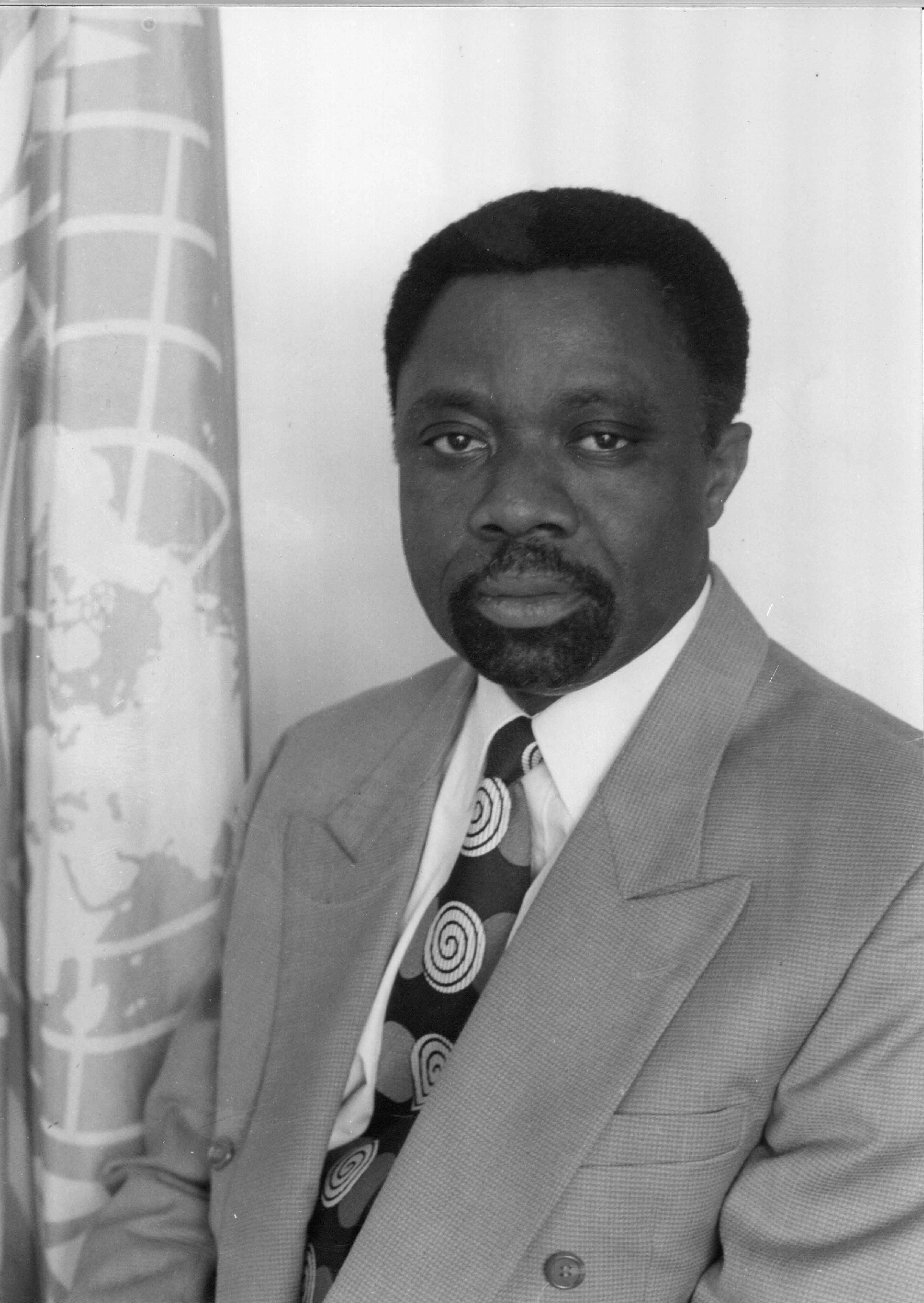 Description: MR. ABDOULIE JANNEH 2005 - 2012 Mr. Abdoulie Janneh, from the Gambia, took over ECA in 2005, at a time when the African institutional landscape was being re-shaped and the new millennium was in its infancy. Mr. Janneh, therefore, put emphasis on realigning the programmes and services with the priorities of the African Union and its New Partnership for Africa’s Development (NEPAD) programme. In that way, ECA was better positioned to address Africa’s development challenges, its special needs and regional integration goals, using a better collaboration between ECA, African Development Bank and th
Image:
Description: MR. ABDOULIE JANNEH 2005 - 2012 Mr. Abdoulie Janneh, from the Gambia, took over ECA in 2005, at a time when the African institutional landscape was being re-shaped and the new millennium was in its infancy. Mr. Janneh, therefore, put emphasis on realigning the programmes and services with the priorities of the African Union and its New Partnership for Africa’s Development (NEPAD) programme. In that way, ECA was better positioned to address Africa’s development challenges, its special needs and regional integration goals, using a better collaboration between ECA, African Development Bank and th
Image: 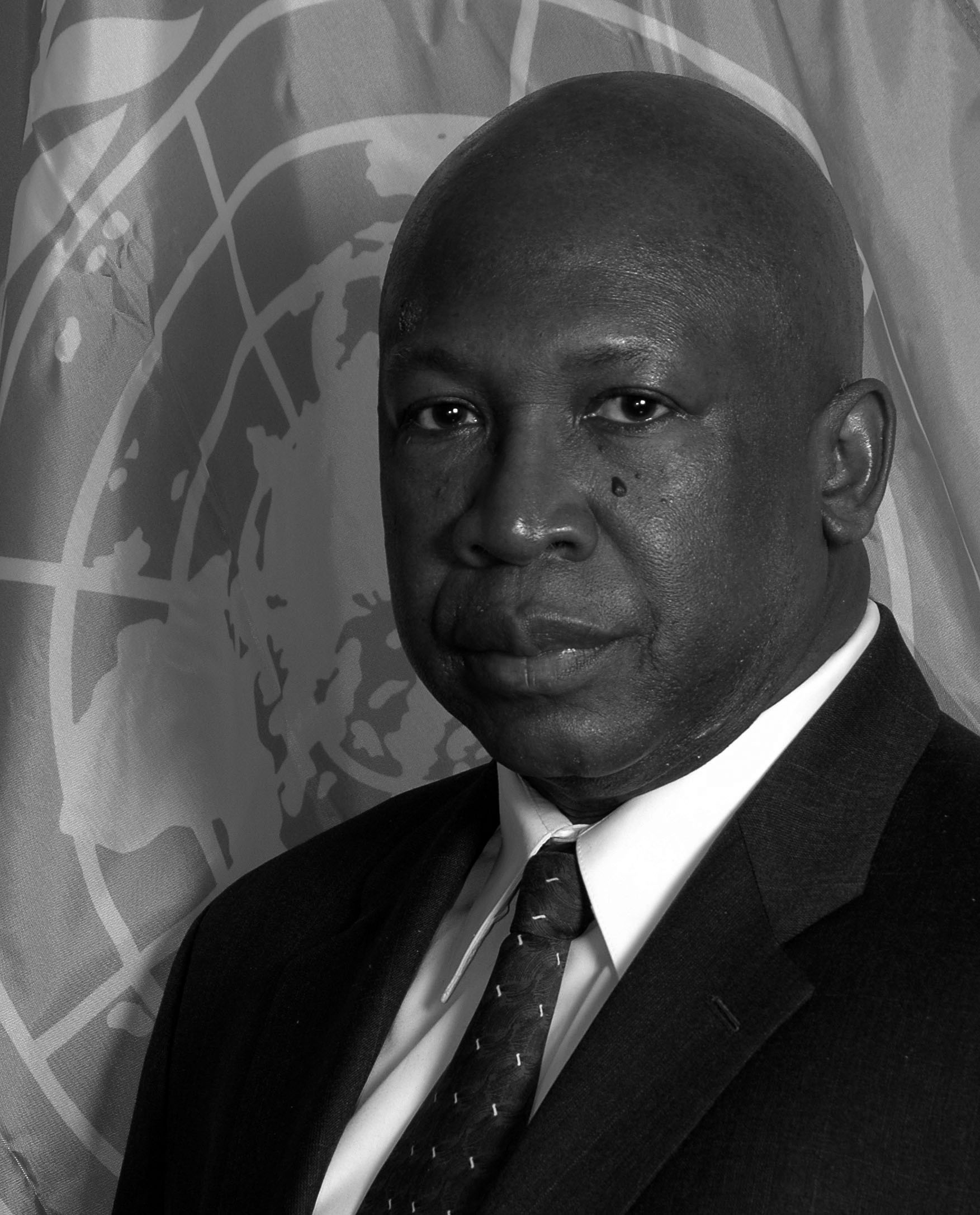 Description: MR. CARLOS LOPES 2012 - 2016 Mr. Carlos Lopes, from Guinea-Bissau, was appointed the eighth Executive Secretary of ECA in September 2012. His anchors were turning the Commission into a primer think tank in Africa and promoting industrialization in advancing structural transformation and inclusive growth in Africa. In 2013, he launched a new programme orientation in which emphasis was placed on accelerating the continent’s structural transformation using the comparative advantages of ECA, by: strengthening the rigour and relevance of the knowledge produced by ECA as an authoritative source of a
Image:
Description: MR. CARLOS LOPES 2012 - 2016 Mr. Carlos Lopes, from Guinea-Bissau, was appointed the eighth Executive Secretary of ECA in September 2012. His anchors were turning the Commission into a primer think tank in Africa and promoting industrialization in advancing structural transformation and inclusive growth in Africa. In 2013, he launched a new programme orientation in which emphasis was placed on accelerating the continent’s structural transformation using the comparative advantages of ECA, by: strengthening the rigour and relevance of the knowledge produced by ECA as an authoritative source of a
Image: 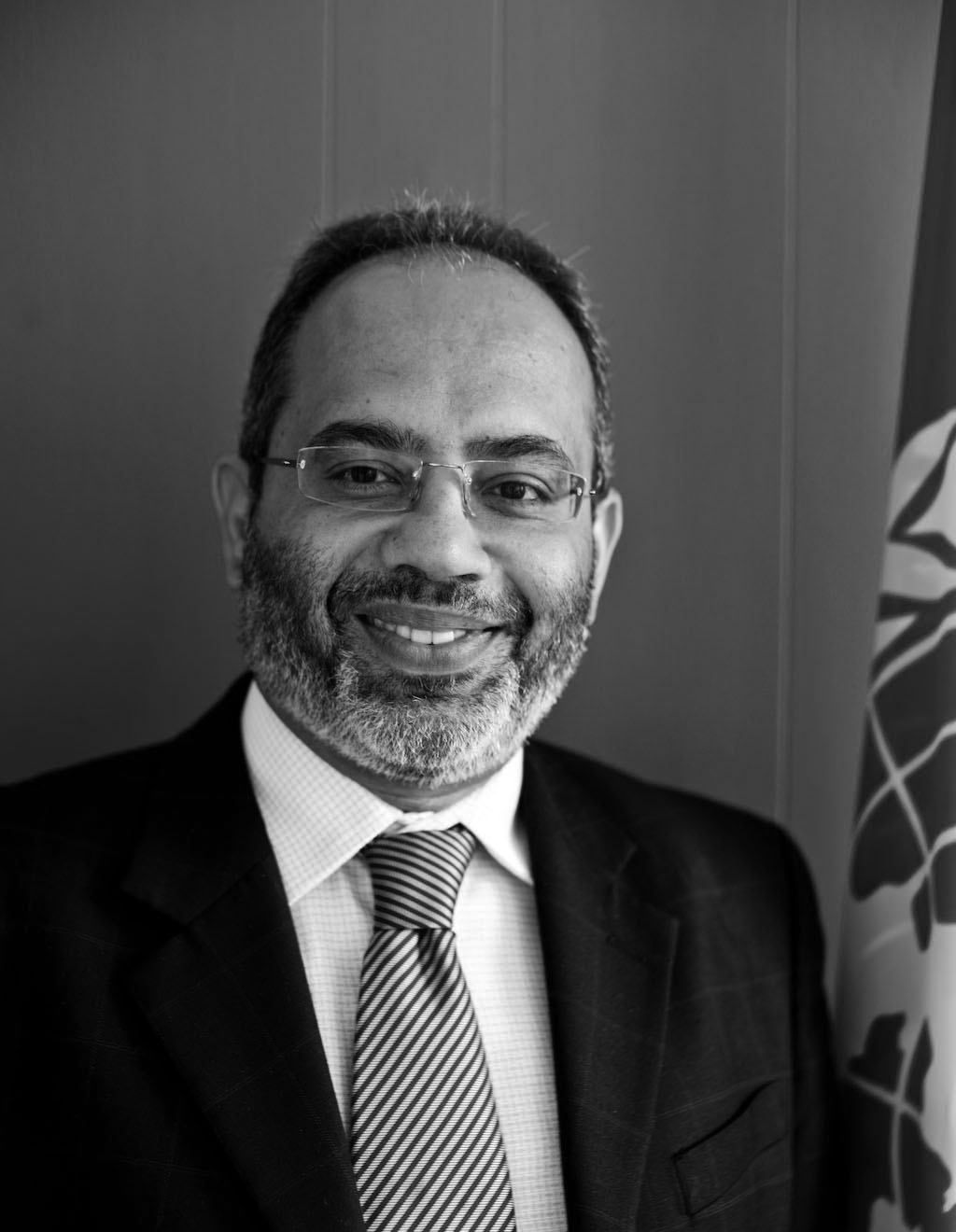
 Description: MR. ROBERT K.A. GARDINER 1961 - 1975 Mr. Robert K.A. Gardiner, a national of Ghana, served as Executive Secretary from 1961 to 1975, during which period ECA set up an institutional framework for the successful implementation of African development policies and helped to establish the African Development Bank and the African Institute for Economic Development and Planning. Under Mr. Gardiner, ECA promoted post-independence original thinking and research on African policy.
Image:
Description: MR. ROBERT K.A. GARDINER 1961 - 1975 Mr. Robert K.A. Gardiner, a national of Ghana, served as Executive Secretary from 1961 to 1975, during which period ECA set up an institutional framework for the successful implementation of African development policies and helped to establish the African Development Bank and the African Institute for Economic Development and Planning. Under Mr. Gardiner, ECA promoted post-independence original thinking and research on African policy.
Image:  Description: PROF. ADEBAYO ADEDEJI 1975 - 1991 Prof. Adebayo Adedeji, from Nigeria, was Executive Secretary from 1975 to 1991, during which period ECA tackled the challenges of a new international economic order to Africa and adopted landmark policies such as the Lagos Plan of Action. Prof Adedeji worked to correct the adverse impacts of structural adjustment programmes on African economies, offering an alternative – the African Alternative Framework to Structural Adjustment Programmes for Socioeconomic Recovery and Transformation. He led the establishment of the regional economic communities, beginning wi
Image:
Description: PROF. ADEBAYO ADEDEJI 1975 - 1991 Prof. Adebayo Adedeji, from Nigeria, was Executive Secretary from 1975 to 1991, during which period ECA tackled the challenges of a new international economic order to Africa and adopted landmark policies such as the Lagos Plan of Action. Prof Adedeji worked to correct the adverse impacts of structural adjustment programmes on African economies, offering an alternative – the African Alternative Framework to Structural Adjustment Programmes for Socioeconomic Recovery and Transformation. He led the establishment of the regional economic communities, beginning wi
Image:  Description: MR. ISSA BEN YACINE DIALLO 1991 - 1992 M. Issa Ben Yacine Diallo, from Guinea, succeeded Prof. Adedeji in August 1991. He was the Director of Cabinet of the Secretary-General and served as ECA Executive Secretary for a transition period of one year, during which time he launched United Nations Trust Fund for the Transportation and Communications Decade in Africa II as envisaged in the Abuja Treaty, establishing the African Economic Community.
Image:
Description: MR. ISSA BEN YACINE DIALLO 1991 - 1992 M. Issa Ben Yacine Diallo, from Guinea, succeeded Prof. Adedeji in August 1991. He was the Director of Cabinet of the Secretary-General and served as ECA Executive Secretary for a transition period of one year, during which time he launched United Nations Trust Fund for the Transportation and Communications Decade in Africa II as envisaged in the Abuja Treaty, establishing the African Economic Community.
Image:  Description: MR. LAYASHI YAKER 1992 - 1995 Mr. Layashi Yaker, former Algerian Ambassador and Minister, became Executive Secretary of ECA in 1992 when he led the Commission to the Rio Summit. He also led the effort for ECA to carry out the Rio Declaration follow-up activity: building African countries’ capacity for sustainable development by devising strategies for Agenda 21 implementation. Mr. Yaker adopted a Plan of Action to harmonize the objectives of the Second Industrial Development Decade for Africa with those of UNTACDA II in order to facilitate implementation of both initiatives.
Image:
Description: MR. LAYASHI YAKER 1992 - 1995 Mr. Layashi Yaker, former Algerian Ambassador and Minister, became Executive Secretary of ECA in 1992 when he led the Commission to the Rio Summit. He also led the effort for ECA to carry out the Rio Declaration follow-up activity: building African countries’ capacity for sustainable development by devising strategies for Agenda 21 implementation. Mr. Yaker adopted a Plan of Action to harmonize the objectives of the Second Industrial Development Decade for Africa with those of UNTACDA II in order to facilitate implementation of both initiatives.
Image:  Description: MR. KINGSLEY Y. AMOAKO 1995 - 2005 Mr. Kingsley Y. Amoako, a national of Ghana, served as Executive Secretary from 1995 to 2005, during which time ECA concentrated on helping African countries to leapfrog into the information age. He institutionalized the African Development Forum and the Big Table as platforms for African policymakers and their development partners to build consensus on key African development issues, providing the Commission with the opportunity to exert its convening power at the highest level.
Image:
Description: MR. KINGSLEY Y. AMOAKO 1995 - 2005 Mr. Kingsley Y. Amoako, a national of Ghana, served as Executive Secretary from 1995 to 2005, during which time ECA concentrated on helping African countries to leapfrog into the information age. He institutionalized the African Development Forum and the Big Table as platforms for African policymakers and their development partners to build consensus on key African development issues, providing the Commission with the opportunity to exert its convening power at the highest level.
Image:  Description: MR. ABDOULIE JANNEH 2005 - 2012 Mr. Abdoulie Janneh, from the Gambia, took over ECA in 2005, at a time when the African institutional landscape was being re-shaped and the new millennium was in its infancy. Mr. Janneh, therefore, put emphasis on realigning the programmes and services with the priorities of the African Union and its New Partnership for Africa’s Development (NEPAD) programme. In that way, ECA was better positioned to address Africa’s development challenges, its special needs and regional integration goals, using a better collaboration between ECA, African Development Bank and th
Image:
Description: MR. ABDOULIE JANNEH 2005 - 2012 Mr. Abdoulie Janneh, from the Gambia, took over ECA in 2005, at a time when the African institutional landscape was being re-shaped and the new millennium was in its infancy. Mr. Janneh, therefore, put emphasis on realigning the programmes and services with the priorities of the African Union and its New Partnership for Africa’s Development (NEPAD) programme. In that way, ECA was better positioned to address Africa’s development challenges, its special needs and regional integration goals, using a better collaboration between ECA, African Development Bank and th
Image:  Description: MR. CARLOS LOPES 2012 - 2016 Mr. Carlos Lopes, from Guinea-Bissau, was appointed the eighth Executive Secretary of ECA in September 2012. His anchors were turning the Commission into a primer think tank in Africa and promoting industrialization in advancing structural transformation and inclusive growth in Africa. In 2013, he launched a new programme orientation in which emphasis was placed on accelerating the continent’s structural transformation using the comparative advantages of ECA, by: strengthening the rigour and relevance of the knowledge produced by ECA as an authoritative source of a
Image:
Description: MR. CARLOS LOPES 2012 - 2016 Mr. Carlos Lopes, from Guinea-Bissau, was appointed the eighth Executive Secretary of ECA in September 2012. His anchors were turning the Commission into a primer think tank in Africa and promoting industrialization in advancing structural transformation and inclusive growth in Africa. In 2013, he launched a new programme orientation in which emphasis was placed on accelerating the continent’s structural transformation using the comparative advantages of ECA, by: strengthening the rigour and relevance of the knowledge produced by ECA as an authoritative source of a
Image: 
